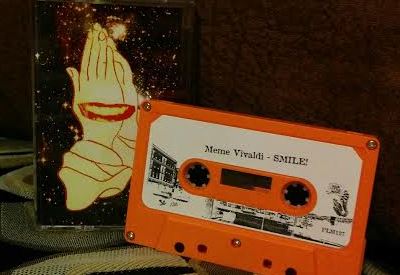by Apu

8/10
Last week was a weird goddamn week. Without going into politics too much because a lot of people seem to get more offended by other people’s political views than they do at an insult directed towards their family, a lot happened in a pretty short amount of time, most of which I don’t think a large portion of the population were actually seriously prepared for. Considering this, it should go without saying that getting some new music at the end of the week was a welcome respite from the Mr. Krabs meme of a week that the country had to deal with. I was personally most interested in A Tribe Called Quest’s new album, We Got It From Here… Thank You 4 Your Service and Fatt Father’s Veterans Day, which is the album I’m here to talk about.
Veteran’s Day is Fatt Father’s first solo release since 2012’s Fatherhood, a release where I felt like Fatts was starting to establish who he was as an artist. Veterans Day, released on the holiday it’s named after, only serves to further that feeling. Fatt Father came into his own on this release, displaying better than ever who he is as an emcee, as well as the person behind the mic.
The album’s production is handled entirely by D.R.U.G.S. Beats, who you may recognize as a producer on Dr. Dre’s last album, Compton (he produced the “Gone” half of “Darkside/Gone”). Being that he is technically a Dr. Dre-approved producer, this album’s beats are very well done throughout. A pretty big portion of the beats, including “Come On,” “Just Listen,” and “The Greatest” among others, cause involuntary head-nodding, and others like “Shabazz’s Gospel” and “Keep Ya Head Up” create a very tangible mood that draws you in even without having to hear Fatt’s verses. D.R.U.G.S. did a great job at capturing Fatt’s style; the production brings out the best of his distinctive, deep voice, and allows him to explore slightly different deliveries that he hasn’t used as often in the past. The end product is an underground street rap album with production that sounds more professional and sonically pleasing than I’ve found on most projects of its ilk.
Veteran’s Day opens up with a speech by someone who seems to be a war vet, detailing emotions that could be construed as something that’s almost like PTSD. That transitions to the first song, “Shabazz’s Gospel,” a song where Fatt Father, a bit like the vet from the intro, goes into detail about the traumas he faced in his past, from the separation of his parents to the deaths of his brother and his close friend Big Cobb. From there, Fatts goes into topics such as his childhood, love and women’s insecurities, police brutality, loss, and his life in current times.
Crack fiend, crack house, 8 ball, quarter ounce,
Death toll moving up, decent folk moving out,
Lost souls searching for boss roles to shoot it out,
Heart cold, traveling dark roads to move about,
Homicide, gather the yellow tape, spool it out,
Mama’s tears falling on cotton blends in huge amounts.
(Mama’s Words)
What I found to be the biggest strength on this project, as I alluded to earlier on, is Fatt Father’s delivery. He’s always had a voice that stood out; it’s deep and it cuts through a record in a very unique way. He sort of reminds me of a mix of Biggie and Scarface in some ways, the latter having a delivery that very much falls under the description I just gave. But on this album, Fatt Father started to adapt it a bit. He really let his emotion, whether positive or negative, bleed through his vocals on this album. It made the emotional songs hit harder, and the lighter songs like “K.A.M.M.H.” and “Come On” much more fun to listen to. It boils down to Fatt Father’s range as an artist expanding. He was always more willing to explore different topics and styles as a member of the Fat Killahz, but as a solo artist he always kept it gutter as shit. He does that on this album too, but he seems more flexible with what he’s willing to talk about and do.
Of course, as with any album, there’s music that are a little less content-heavy, and more for just vibing to. Some serve as great pump-up songs, such as “Just Listen,” “K.A.M.M.H.” with Ro Spit (this one’s my favorite song off the album), and “The Greatest” featuring killer verses from Fatt Father and Kuniva, and a fairly good verse from Royce da 5’9” that I felt fell a bit short of the energy that was coming from the rest of the track. Then there are songs like “Everybody” and “Never Die” featuring strong verses from Fat Killahz members Marv Won, Bang Belushi, and a too-over-the-top-for-me verse from King Gordy, both of which (besides Gordy’s verse) you can just chill to, listening to some nice verses and smooth beats that would sound awesome on a car stereo system. There is a nice display at diversity while keeping to a general sound on this album.
Overall, I’m very happy with Veteran’s Day. I love to see an artist who’s sort of an underdog the way Fatt Father is make an album that displays the sort of effort that a lot of so-called top artists don’t have in their music. Hearing a rapper older than most of the kids coming out make an album that displays hunger that they can’t muster up is just so satisfying to me, and reminds me that even though sometimes bullshit (from both the mainstream and underground) may get frustrating to always have to hear, good music will always be made because there will always be someone who cares. This album just solidifies why I place Fatt Father in my list of rappers who I take a personal responsibility for when it comes to spreading their music.





